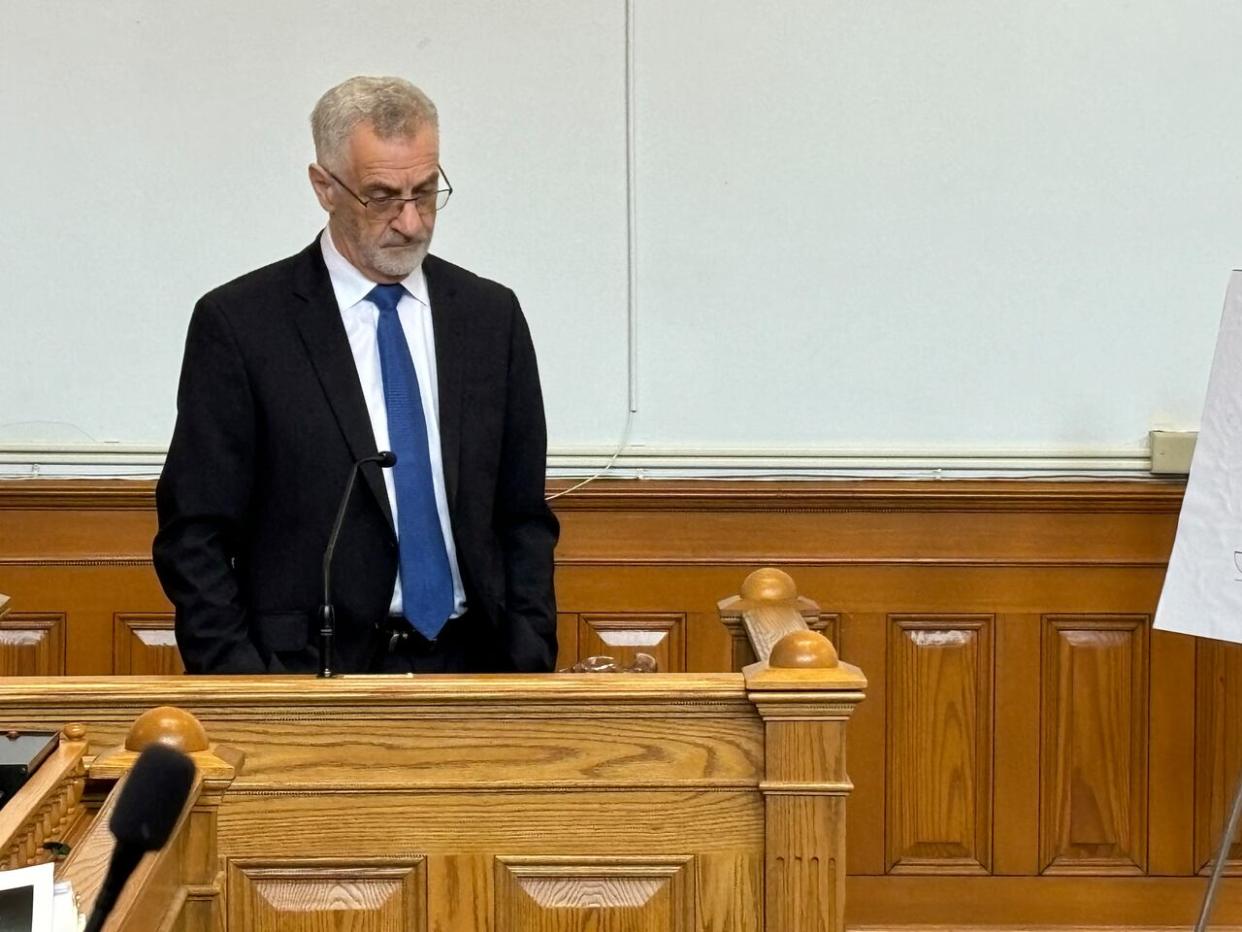Sparks fly between Crown, defence during closing arguments in Robert Regular trial


The sexual assault trial of lawyer Robert Regular, 72, wrapped up Tuesday afternoon with closing arguments at Supreme Court in St. John’s. (Ariana Kelland/CBC)
The sexual assault trial of Conception Bay South businessman and lawyer Robert Regular wrapped up Tuesday, with defence counsel arguing the Crown hadn't proven its case beyond a reasonable doubt.
Regular, 72, is charged with four counts of sexual assault and one of sexual interference, all involving the same complainant.
The complainant, who is now in her mid-30s, was 12 at the time of the first alleged assault two decades ago. There is a publication ban on her identity.
Regular hasdenied all allegations.
During her closing argument Tuesday at Supreme Court in St. John's, defence counsel Rosellen Sullivan focused on what she said were inconsistencies in the complainant's testimony, like her timeline of events and her contact with Regular over the years.
Sullivan said the Crown's case was "fraught with inconsistencies, improbabilities, impossibilities and downright fabrications" that hurt the complainant's credibility. The complainant's statements changed over time, said Sullivan, including while she was on the stand in court.
"It is a rare case, I would submit to you, where the Crown's case has so many internal problems and at the same time, the defence's case is so strong," said Sullivan.
Defence links presumption of innocence and reasonable doubt
Defence counsel Jerome Kennedy spoke about the link between the legal principles of proof beyond reasonable doubt and the presumption of innocence of the accused.
"The two concepts are forever as closely linked as Romeo and Juliet or Oberon and Titania. And they must be presented together," he said. "The presumption of innocence is the golden thread of criminal justice and proof beyond reasonable doubt is the silver, and these two threads are forever intertwined in the fabric of criminal law."
He said the Crown had not proven its case beyond a reasonable doubt, and the defence asked for an acquittal on all five charges.
Crown prosecutor Deidre Badcock took issue with Kennedy's remarks, when he suggested her closing argument would include the possibility that Regular's calendar of appointments had been tampered with.
"There is ample evidence to contradict the Crown's position," said Kennedy.
Kennedy said Crown prosecutor Deidre Badcock would make submissions in her final statement about the possibility that Regular's calendar of appointments had been tampered with but he said there is no evidence to support the allegation.
"The allegation of the tampering with or manipulation of records is pure speculation and should be ignored by the court," he said.
Badcock rose from her seat while Kennedy was talking about the "Crown's conduct."
"I haven't even made a comment yet and I'm being accused of making inflammatory comments," she said. "This is purely offensive to me and my duty. I have not spoken. I have not made a closing statement. And we're literally talking about how I'm going to make inflammatory statements. This is not appropriate closing submissions."
Complainant was consistent, argues Crown
In Badcock's closing argument, she refuted the importance Sullivan had placed on inconsistencies in the complainant's testimony, which Badcock called "peripheral" and said didn't detract from her overall testimony.
Badcock said it can be difficult for people to recall or describe accurately traumatic events at a later date.
"A witness cannot be expected to have a faithful memory of minor incidents that occurred during a traumatic event, and an inability to recall minor or insignificant events does not detract from a witness's overall reliability or credibility," said Badcock.
It's human nature to try to make sense from bits of memory, she added.
"When you look at the whole of the evidence, the Crown says yes, there are certainly some problems in the evidence of [the complainant] on peripheral matters. But her answers on the subject matter are consistent."
When all the evidence is considered, she said, the Crown had proven its case beyond reasonable doubt andRegular should be found guilty.
Justice Vikas Khaladkar is scheduled to deliver his decision on June 27.
Previous trial coverage:
Download our free CBC News app to sign up for push alerts for CBC Newfoundland and Labrador. Click here to visit our landing page.

 Yahoo News
Yahoo News 
